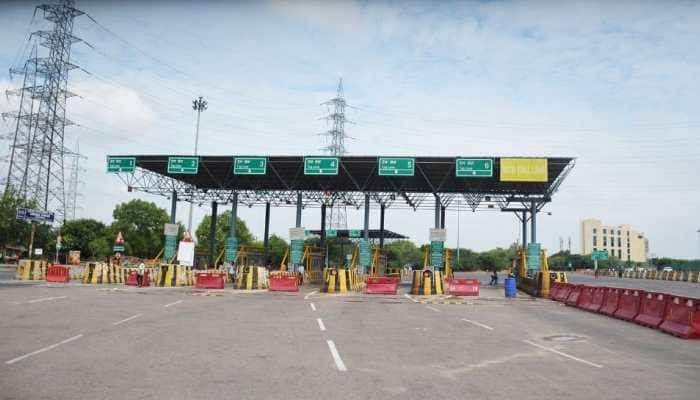Delhi's air quality worst in 8 months, AQI moves into 'very poor' category
The last time the air quality hit such a poor level in the past 8 months was in the second week of February.
- According to the Center-run System of Air Quality and Weather Forecasting And Research (SAFAR), Delhi's (overall) AQI was recorded at 306 at 7 PM, which falls under the 'very poor' category.
- As of Monday, the air quality was in the 'poor' category. A PTI report said that it was recorded at 261 on Monday, 216 on Sunday and 221 on Saturday.
Trending Photos
) Photo: PTI
Photo: PTI New Delhi: Hours after Delhi's Deputy Chief Minister Manish Sisodia said that the pollution is an issue not only for the Delhiites but entire north India and that Centre didn't do anything to resolve it, the national capital recorded its worst air quality index (AQI) in the past eight months on Tuesday (October 13, 2020).
According to the Center-run System of Air Quality and Weather Forecasting And Research (SAFAR), Delhi's (overall) AQI was recorded at 306 at 7 PM, which falls under the 'very poor' category.
As of Monday, the air quality was in the 'poor' category. A PTI report said that it was recorded at 261 on Monday, 216 on Sunday and 221 on Saturday.
The last time the air quality hit such a poor level in the past 8 months was in the second week of February when the AQI had touched 320.
This is to be noted that an AQI between 0 and 50 falls under the 'good' category, 51 and 100 is considered as 'satisfactory', 101 and 200 'moderate', 201 and 300 'poor', 301 and 400 'very poor' and 401 and 500 are marked as 'severe'.
According to the Ministry of Earth Sciences' Air Quality Early Warning System for Delhi, an increase was also observed in farm fires in Punjab and Haryana.
In the national capital, Dwarka Sector-8 (AQI 390), Wazirpur (AQI 372) and Mundka (AQI 352) recorded the highest pollution levels on Tuesday.
Also read | Diesel generators to be banned in Delhi from October 15 under new anti-pollution plan
"The dip in the air quality can be attributed to low wind speed which allowed the accumulation of pollutants," PTI quoted VK Soni, a senior scientist at the India Meteorological Department, as saying.
"The ventilation index has improved slightly and no drastic change is expected in the AQI," he added.
The ventilation index is the speed at which pollutants can get dispersed and a ventilation index lower than 6,000 sqm/second, with average wind speed less than 10 kmph, is unfavourable for dispersion of pollutants.
Earlier in the day, Delhi Deputy CM Manish Sisodia said that pollution, especially that related to stubble burning, is not an issue for Delhi alone, it is for the entire north India. He asserted that the Delhi government has been working around the year to minimise the pollution level in the national capital. He slammed the Centre saying that "unfortunately, the central government did not do anything to resolve it". He accused the Centre of sitting idle throughout the year.
In a related development, Delhi Chief Minister Arvind Kejriwal and Environment Minister Gopal Rai kick-started the sprinkling of the bio-decomposer solution, prepared by Pusa Research Institute in a field at Hiranki Village in Narela area of the national capital on Tuesday.
The process aims to convert stubble into compost and help in doing away with the practice of burning it. While talking to the media, Kejriwal said that the government has made all arrangements and farmers will not have to spend any money.
"There is around 700-800 hectares of land in Delhi where non-basmati rice is cultivated. We have made all arrangements. Farmers will not have to spend any money. Sprinkling will be done, stubble will get converted into compost and the land will be ready for crops in 20-25 days," Kejriwal said.
पराली को खाद में बदलने के लिए बायो-डिकम्पोज़र घोल के छिड़काव का काम आज दिल्ली के हिरनकी गांव से शुरू हो चुका है। इसका सारा खर्च दिल्ली सरकार उठा रही है।
अब दिल्ली के किसानों को पराली जलानी नहीं पड़ेगी। उम्मीद है कि अन्य सरकारें भी इस दिशा में ठोस कदम उठाएंगी। pic.twitter.com/jbqU7jjfUz — Arvind Kejriwal (@ArvindKejriwal) October 13, 2020
Stay informed on all the latest news, real-time breaking news updates, and follow all the important headlines in india news and world News on Zee News.
Live Tv







)
)
)
)
)
)
)
)
)
)

